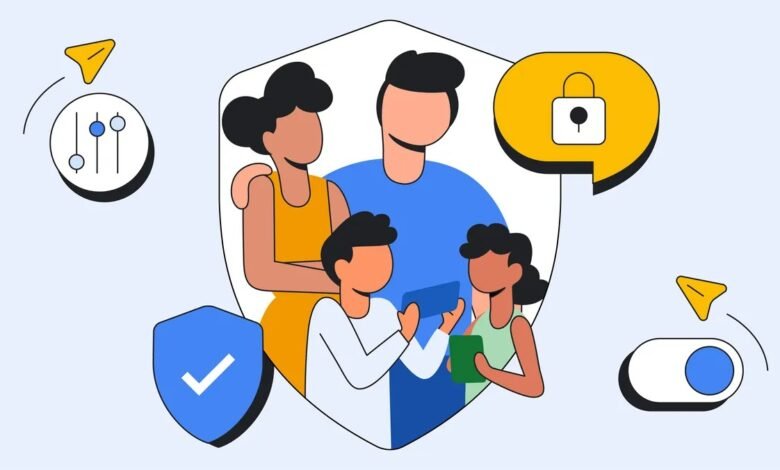4 Ways Parents are Keeping their Children Safer Online

Source: https://blog.google/
As the holiday season approaches, many parents are considering gifting technology, such as mobile phones, game consoles, and computers, to their children. However, they face the challenge of ensuring their kids’ safety online. Google recently conducted a survey of nearly 10,000 parents of children aged 5-17 across 23 countries, including the European Union. The survey revealed four key strategies parents use to protect their kids online: finding age-appropriate content, managing screen time, and selecting the right tools and platforms to foster a positive online experience.
Here are four things parents are doing to help keep their kids safer online:
1. Starting conversations on safety early with their children: A recent survey in the EU found that 82% of parents discussed online safety with their children in the past year, showing increased awareness of its importance. With children getting online at younger ages, the average child receives their first mobile phone at 9 years old. Although 70% of parents feel they started conversations about online safety at the right age, 22% wish they had started earlier. Programs like “Be Internet Awesome” can help parents initiate these discussions with younger children, providing the tools and knowledge for safer, age-appropriate online experiences.
2. Using time limits, parental control tools and age appropriate platforms: As children transition into teenagers, their online habits shift, with educational apps becoming a major reason for internet use. A survey showed that 42% of parents use parental control tools, such as Google’s Family Link, to promote healthy digital habits, and 49% set time limits to manage device usage. Balancing flexible and strict controls is key, as strategies for younger children may not be suitable for teens. 58% of parents plan to adjust safety rules as their children grow, with tools like YouTube Teen Supervision helping to protect privacy and well-being as kids mature.
3. Focusing on key safety issues: Over half of parents surveyed have discussed the difference between real and fake content with their children, highlighting growing concerns about deceptive online material. Privacy, security, and inappropriate content were also key topics parents address, with 1 in 4 feeling more concerned about these issues than last year. Additionally, more than half of parents believe their children’s teachers have discussed online safety with them. With advancements like generative AI, digital literacy has become even more important. The Experience AI program, developed with Raspberry Pi Foundation and Google DeepMind, helps teachers educate 11-14-year-olds on AI safely.
4. Becoming digitally savvy so they can give the best advice: A survey found that 74% of parents feel confident in their knowledge of online safety and are eager to access more resources. Additionally, 81% of parents are confident their children will seek help if they face online issues. Google works with civil society and educational organizations to offer programs that promote critical thinking and online safety, such as Be Internet Awesome and Hit Pause. Through Google.org, they support about 70 organizations in Europe focused on digital literacy. Collaboration between parents, teachers, tech companies, and policymakers is key to ensuring a safer, positive online experience for children.
Read More: https://childreninfobank.com/safebank/4-ways-parents-are-keeping-their-children-safer-online/
Image Source: https://blog.google/





